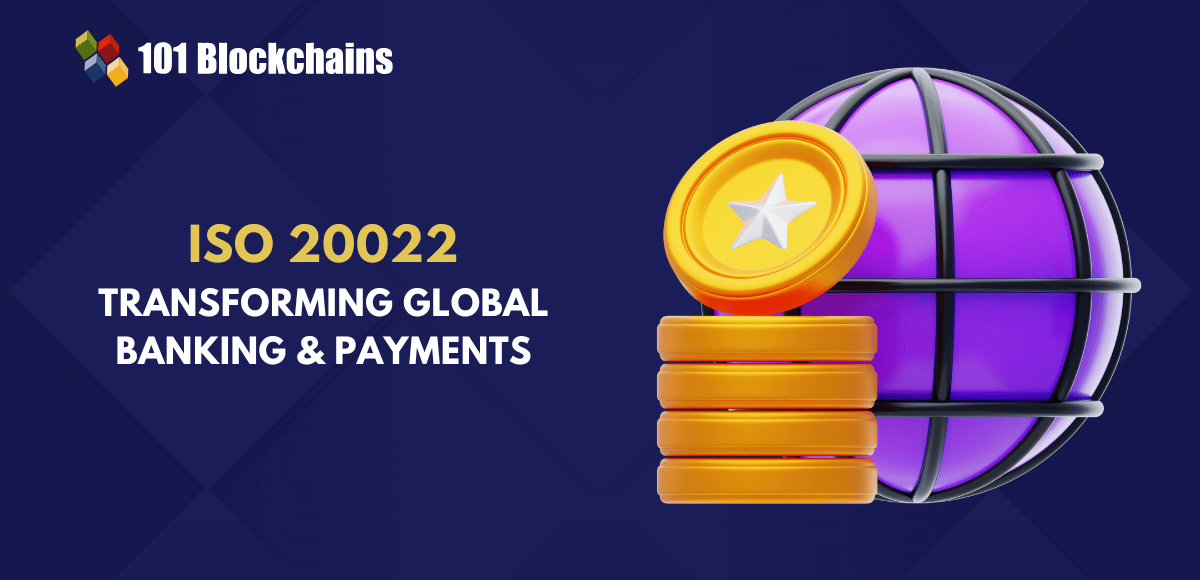Learn how blockchain truly works, master key definitions, and uncover what makes smart contracts so "smart." Dive into the fundamentals, gain valuable insights, and start your blockchain journey today!

- Guides
Aviv Lichtigstein
- on July 28, 2018
Blockchain Education- The Key To Economic Growth
Blockchain technology has been making waves as one of the most disruptive and promising technologies of this generation. Most people have likened it to the dawn of the dot-com era which revolutionized how businesses operate and led to the creation of industries worth billions of dollars.
Industry experts are convinced that the impact of blockchain could be as significant as that of the internet age. If that is the case, then it might be time for global authorities to consider the introduction of blockchain education into school curriculums.
Want to learn blockchain technology in detail? Enroll Now in Certified Enterprise Blockchain Professional (CEBP) Course
Why is blockchain education important?
In order to understand the importance of blockchain education, one must first understand the technology itself and what it is capable of. The most basic explanation of Blockchain is that it is a decentralized ledger that has the capacity to store data progressively but stored data cannot be altered or changed. Additionally, its network is supported by computers distributed all over the world rather than taking the traditional approach where networks are supported by servers.
Blockchain technology made its debut as the technology on which Bitcoin (BTC), the first cryptocurrency was built. So far more than 1,000 different types of cryptocurrencies exist in the market. Cryptocurrencies are expected to be the future of money which means blockchain will be at the center of it all when that happens.
The impact of blockchain technology also expands beyond the scope of the financial system. For example, decentralized ledger technologies can be used to create secure automated systems that can be used to run corporations. For example, the technology can be used to create hotel systems that handle customer information from the moment they check in, to the moment they check out.
One of the latest examples of blockchain use is P2P electric vehicle charging which is facilitated by smart contracts aims to allow private EV chargers to be shared publicly. The idea is to allow the owners of said chargers to earn some extra cash when they are not using the chargers by allowing other EV owners to charge through their outlet. This is just one of the many applications of blockchain technology.
A workforce that understands blockchain
Over the past 30 or so years, people have been educated about computer technologies and the internet. This has facilitated the creation of a workforce that has driven computing and the internet to today’s impressive levels. If blockchain is the technology of the future, then the same strategy should be used where people are educated about the technology.
Blockchain education can also be delivered in multiple ways. The education curriculum can accommodate subjects that teach students about blockchain in schools and institutions of higher learning. Also, companies that develop blockchain technology and even those that adopt blockchain technology can launch initiatives through which they can sensitize and educate the public about blockchain, its uses and also it’s potential.
Just like programming, special courses can also be developed to teach people how to create and implement blockchain. So far blockchain developers are highly sought after as startups and traditional companies venture into decentralized ledger technology and there has actually been a shortage of blockchain developers. There are no blockchain development courses in traditional learning institutions and the few blockchain developers and experts that exist are mostly self-taught. There is thus a niche for courses related to the development of the technology.
It is worth noting that a few institutions have already started offering courses about blockchain technology. Some of those institutions include the University of Nicosia located in Cyprus and a few other major universities in the U.S. Overall, there are very few institutions that have launched such programs which mean that there is still a long way to go.
Start learning Blockchain with World’s first Blockchain Skill Paths with quality resources tailored by industry experts Now!
How institutions and firms are approaching blockchain education
As noted earlier, blockchain education is something that corporates dealing with the technology have been trying to achieve in order to not only empower people but also give them a basic understanding of how it works as well as its benefits. Institutions and organizations such as the Linux Foundation and IBM which have been offering certificate courses on blockchain technology.
MIT and Princeton have also been offering courses on blockchain education along with other universities such as Stanford, Duke, NYU, John Hopkins, Cornell, and Vanderbilt. Stanford has particularly taken an interesting approach that involves introducing blockchain and cryptocurrency as a unit in its Computer Science course. The aim of the unit is to educate Computer Science students on how blockchains work and how to create decentralized apps that can interact with decentralized ledger technology. The unit also teaches the student how to create smart contracts as revealed by Professor Dan Boneh.
Stanford’s approach could be one of the alternative methods that institutions can adopt in order to spread blockchain education. It is a particularly interesting approach because it highlights the potential trend that most other universities and institutions of higher learning are likely to adopt rather than creating a whole new course that is about blockchain. It also helps that such an approach is already in use because sectors such as IT are constantly changing and new content is added to the curriculums every once in a while. It should, therefore, be no different for blockchain especially since it is also a subject that focuses on computer technology.
Duke University’s success in a blockchain education program
Blockchain education should also not be limited to IT-related courses especially since the technology can also be applied in other areas. The strategy of introducing units that educate students about blockchain can also be used In courses that deal with business an engineering. Other institutes have been offering full courses on the subject. For example, Duke University introduced an Innovation and Cryptoventures course in 2014 which is taught by professor Campbell Harvey of the Fuqua School of Business.
Duke’s Innovation and Cryptoventures course teaches multiple facets of blockchain including the development of smart contracts and crypto finance. The course started out with about 13 students when it was launched and has since then come a long way since then. Over 50 percent of all the students at the Fuqua School of Business who are graduating this year have taken the course. It has particularly attracted engineering, business, law, and computer science students.
Professor Harvey also revealed that the number of students enrolled in the program rose drastically from about 75 students in 2017 to more than 230 students this year. This suggests that the sudden increase in the number of students interested in the subject was directly influenced by the surging cryptocurrency market in 2017. It is also proof that people are interested to find out more about the technology behind cryptocurrencies and how cryptocurrencies work. According to Professor Boneh, getting such courses approved is not difficult especially with the rising popularity of blockchain and digital currencies.
Want to become a bitcoin expert? Enroll Now in Getting Started with Bitcoin Technology Course
What will be the impact of blockchain education?
The biggest benefit of blockchain education will be the refinement of the technology. Like many other technology segments, an increase in the number of experts in a particular technology segment often results in that technology becoming better. This directly proportional increase is because some of the experts can come up with unique ways through which various aspects of their chosen field can be tweaked for better outcomes.
The same should also apply to blockchain development, meaning that blockchain education will result in more skilled blockchain experts and therefore, a directly proportional refinement of the technology. Decentralized ledger technologies are still in their early years of development and this means that there is still a lot to do and a lot of improvements to be made.
There are also the secondary advantages of blockchain education such as the creation of jobs. As mentioned earlier, there is a shortage of blockchain developers and as such, blockchain development and cryptography courses will help cater to the demand while creating jobs and thus improving the livelihoods of those who secure such jobs.
The advancements in decentralized ledger technologies as a result of blockchain education might be astronomical in the sense that more technological capabilities could be unlocked. One of the biggest selling points of decentralized ledger technology is superior levels of security since it is claimed that blockchain is virtually unhackable. This means that future technology systems will most likely be more robust and malicious hacks could become a thing of the past.
Is blockchain education the answer to global adoption of cryptocurrencies?
As mentioned earlier, cryptocurrencies are supported by blockchain. It is almost a decade since Bitcoin was created and introduced into the market and there has been a lot of growth since then. Last year there was a boom in the cryptocurrency market leading to a massive surge in the value of Bitcoin and other digital currencies as more people invested in cryptocurrencies for speculative purposes. This means that most of the people that embraced digital currencies only embraced them so that they could grow their wealth.
Digital currencies were created with the idea of facilitating easy online and digital payments by replacing or complementing fiat currencies. Unfortunately, the adoption of cryptocurrencies is still very low, meaning they are far from achieving the goal for which they were created due to slow adoption as a form of payment or exchange of value.
There are numerous factors limiting mass adoption of cryptocurrencies as forms. Some of those factors include the high levels of volatility in the cryptocurrency market, the lack of proper guidelines governing the use of digital currencies and the crypto theft through malicious hacks on digital currency exchanges. However, one of the biggest reasons behind the low adoption is perhaps the fact that people do not understand how cryptocurrencies work.
Blockchain education might, therefore, be the answer that the cryptocurrency market has been waiting for. Perhaps people will feel more comfortable about using cryptocurrencies once they understand the technology that supports them. Additionally, blockchain education should also help spread knowledge about digital currencies since there are so many people out there who do not know about them. This could increase the chances of more people embracing the idea of decentralized systems and digital currencies.
Want to become a Cryptocurrency expert? Enroll now in Cryptocurrency Fundamentals Course!
Blockchain as a disruptive force
Blockchain technology and cryptocurrencies have so far created quite a buzz in the world as one of the most disruptive technologies that have the potential to change how industries work. Over the past few years, there has been talks about the potential impact of blockchain, especially in the banking industry. So far a few banks have already started experimenting on blockchain technology in an effort to increase the efficiency of their services as well as cost savings.
One of the most talked about uses of Blockchain in the improvement of the banking sector is the development of more efficient systems that use digital currencies to facilitate faster remittance through the use of digital currencies. Although blockchain has had its own challenges such as scalability, developers have been busy at work trying to come up with solutions that can facilitate the realization of those efficiency goals.
The adoption of blockchain by banks is yet another reason why blockchain education is important so that clients are assured about the integrity of the banking system. This is necessary because people tend to refrain from what they do not understand. Regulators have also taken up an interest in the technology and have been working hand in hand with banks to create regulatory frameworks.
Some of the banks that have already started exploring blockchain technology include Banco Santander, Credit Suisse, and UBS. More banks are expected to join the movement as blockchain continues to gain popularity.
Blockchain and integrity
The structure of blockchain technology facilitates data storage in processes and the data cannot be manipulated once recorded. This is one of the most important features of decentralized ledger technology and this is one of the reasons why it is ideal for systems that require transparency.
Blockchain technology can be implemented for example in government systems to facilitate accountability and help fight corruption. The same concept can be deployed in procurement systems to facilitate the monitoring of products from the production stage, to the time they reach the final consumers. Such a system is ideal for various industries such as pharmaceuticals which have traditionally suffered great losses due to mismanagement and irregularities in the procurement process. Blockchain technology can also be implemented in other key areas such as agriculture to monitor production and many other areas to ensure proper handling of data.
Start your blockchain journey Now with the Enterprise Blockchains Fundamentals – Free Course!
Smart contracts
Imagine a world where there are no middlemen and transactions can be facilitated via blockchain in a trustless manner without risks. Blockchain can make such a world a reality through smart contracts. The latter refers to a system of protocols built into a blockchain to facilitate digital contracts between two parties without the involvement of third parties. For example, smart contracts can be used to facilitate commerce on a blockchain without the need for an e-commerce website acting as the third party.
A good example of a market that can benefit a lot from smart contract technology is the real estate market. Blockchain-based platforms can make it easy for anyone to purchase property regardless of where they are in the world and also without hefty broker fees. Smart contracts make it possible to achieve such transactions because the protocols are designed to ensure that each party involved has fulfilled their obligations. Penalties and rules are structured into the agreements in a fashion similar to that of traditional contracts but in this case, the obligations are enforced automatically.
Vitalik Buterin, one of the founders of the Ethereum blockchain explained that smart contracts treat an asset or currency as a program that runs a code and validates conditions in an agreement. It determines whether an asset should be transferred to the buying party or whether it should remain with the existing owner.
Smart contracts might provide a glimpse into the future of the commerce industry. However, the only thing standing in the way of such technology is mass adoption and this cannot happen unless people are aware of the existence of such technology and if they trust how it works. Blockchain education is the best way to spread the awareness about such technology to encourage more people to jump on board. It is almost similar to what happened with Bitcoin where most of the people who invest in it only do so after they become aware of its existence and its potential.
The evidence of blockchain education
The banking and finance sector provides a perfect example of why blockchain education is important. Some of the major companies and financial institutions on Wall Street were initially opposed to blockchain and cryptocurrencies but they have started embracing them over time. It is clear that they were initially against it because they thought that cryptocurrencies and their underlying technology would disrupt the traditional methods that have for decades allowed them to make a lot of money. When something new comes along and threatens a comfortable existence, it is often met with a lot of hostility and the same case applies when it comes to Wall Street.
The changing opinions about blockchain and cryptocurrencies are attributed to two main factors. Wall Street firms realized that Blockchain technology is quite promising as a technology that might lead to the next big step in the digital space and that they will probably miss out on huge opportunities if they remain on the opposition.
Wall Street’s acceptance of blockchain has thus been fueled by the understanding of the technology and all that it has to offer as well as its potential achievements in the future. It, therefore, underscores the importance of blockchain education to provide a better understanding of the true potential of the technology.
Such an understanding has even led to the creation of the Wall Street Blockchain Alliance (WSBA) which is a non-profit organization whose members are professionals in the financial market. Its goal is to promote the adoption of decentralized ledger technology in financial markets. they aim to achieve this through studies and public talks about hot topics such as smart contract, decentralized ledgers, and blockchain.
Excited to learn the basic and advanced concepts of ethereum technology? Enroll Now in The Complete Ethereum Technology Course
Blockchain could change the education system
While on the subject of blockchain education, it is also worth noting that the sky is the limit as far as the application of the technology is concerned. Name an industry or sector in the social and economic setting and blockchain can most likely be applied there to deliver significant improvements. This is also the same case when it comes to the education sector.
Blockchain education can not only be incorporated into the education sector through courses and programs to teach people but it can also be implemented as a technology that can improve education systems. For example, decentralized ledger technology can be used to create a database that can contain information about an individual’s training, skills and courses attended and completed by lecturers.
Such a database can be applied by employers to quickly filter data concerning an employee’s knowledge and this can greatly assist in speeding up recruitment processes. Such a database would also encourage students to maintain more seriousness in their attendance records because irregularities can jeopardize their future opportunities in the job market. It would also be convenient for employers to use such a database instead of piling up certificates and papers of job applicants.
Overall blockchain has so far proven to be a useful tool in this day and age through cryptocurrencies and that is just the tip of the iceberg. The application of blockchain in a variety of industries will allow the technology to offer significant improvements in operations and output. This means that the technology can be used to promote economic growth by fostering more efficiency. The technology is thus a good bet for the future of many industries and could drastically change how things operate in today’s market.
Join our annual/monthly membership program and get unlimited access to 25+ professional courses and 55+ on-demand webinars.
*Disclaimer: The article should not be taken as, and is not intended to provide any investment advice. Claims made in this article do not constitute investment advice and should not be taken as such. 101 Blockchains shall not be responsible for any loss sustained by any person who relies on this article. Do your own research!




